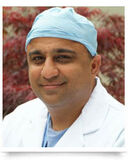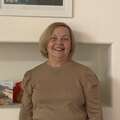Inside Access: What Should All Patients Know About the Mitral Conclave?
By Adam Pick on August 18, 2015
Did you know that over 1,000 surgeons and cardiologists recently met in New York City for the Mitral Conclave conference? Curious to know why and how this extraordinary, two-day event is transforming heart valve therapy?
To answer these questions, I filmed this video to take you inside the… Mitral Conclave.
Isn’t the Mitral Conclave amazing? I mean… 1,000 doctors… Spending two days… Talking about the mitral valve and related cardiac disorders. And, why? To improve the health and the lives of patients — like you and me. Wonderful! 🙂
On behalf of our community, I would like to thank all of the doctors who traveled to New York for this educational conference. I also need to extend a special thanks to Dr. David Adams for starting and organizing this amazing event. And, I would like thank each physician who took the time to meet with me during the conference — Dr. Steven Bolling, Dr. Michael Mack, Dr. Irving Kron, Dr. Volkmar Falk, Dr. Hugo Vanermen, Dr. Marc Gillinov, Dr. Michael Borger, Mr. Francis Wells, Dr. Tirone David, Dr. Patrick McCarthy, Dr. Gilles Dreyfus, Dr. Harold Roberts, Dr. Robert Dion, Dr. Randy Martin and Dr. Chitwood.
Finally… In case you missed it, here are links to our “Ask Me Anything” video series filmed at the Mitral Conclave:
- Ask Me Anything #4 – Six Patient Questions About Mitral Valve Surgery
- Ask Me Anything #3 – How Bad Does My Murmur Have to Be Before It’s fixed?
- Ask Me Anything #2 – Is the MitraClip a Standard Procedure?
- Ask Me Anything #1 – Are Palpitations a Sign of Mitral Valve Disease?
Keep on tickin!
Adam
P.S. For the hearing impaired members of our community, I have provided a written transcript of the video below.
David Adams: The goal of this meeting has always been to bring all of the community together, all of the world experts together, and talk about advances in the field of mitral valve repair for patients. Over these two days, the attendees are exposed to every conceivable procedure and approach to repair mitral valve and that’s something that I’m really proud about.
Steven Bolling: As always, the Mitral Valve Conclave is very exciting and it’s all about communication and teaching. It’s so concentrated. Everyone is here thinking about the mitral valve.
Dr. Michael Mack: This is a time that is just exposing in the mitral valve area due to technology and new techniques.
Dr. Irving Kron: We can take the true experts and teach people techniques so mitral valve disease can be treated in a thoughtful and standardized fashion.
Dr. Volkmar Falk: Mitral valve disease is a global problem and so what we find here is global solutions.
Dr. Hugo Vanermen: I come from Belgium all over the Atlantic to New York City because this is where all the experts are.
Dr. Marc Gillinov: When you get all of these experts together, everyone leaves a better mitral valve surgeon than when they arrived.
Dr. Michael Borger: They have all of the thought leaders in mitral valve surgery from around the world all in one room.
Mr. Francis Wells: Having an opportunity to mix with our colleagues, hear what they have to say, I think it’s an extremely important and useful forum.
Dr. Tirone David: In medicine, nothing is black white; it’s all different shades of gray.
Dr. Patrick McCarthy: I’ve been in sessions on atrial fibrillation. I’m here to talk about tricuspid surgery and aortic valve surgery. People are learning a lot about heart valve disease.
Dr. Gilles Dreyfus: People can really see practical aspects of what we do. I think a lot of surgeons are attending here because they can see the real world.
Dr. Harold Roberts: I learn the latest techniques that can be used for a durable repair and add that to my armamentarium.
Dr. Robert Dion: To go through all the possibilities of treating mitral valve disease so it is really worthwhile to come here and to attend these two days.
Dr. Randy Martin: It’s extremely important for a cardiologist to be at a module conclave, a meeting like this, so we will understand exactly what they do, what their thought patterns are, how we can help them help their patients, and our patients. It’s absolutely critical that the cardiologist becomes a real member of the team.
Dr. Randolph Chitwood: In many circumstances, you can repair a valve rather than replacing it, and there are so many advantages to that for the patient. The more people that understand the exact way to repair valves safely, efficiently and with great results, the better for the patient.













